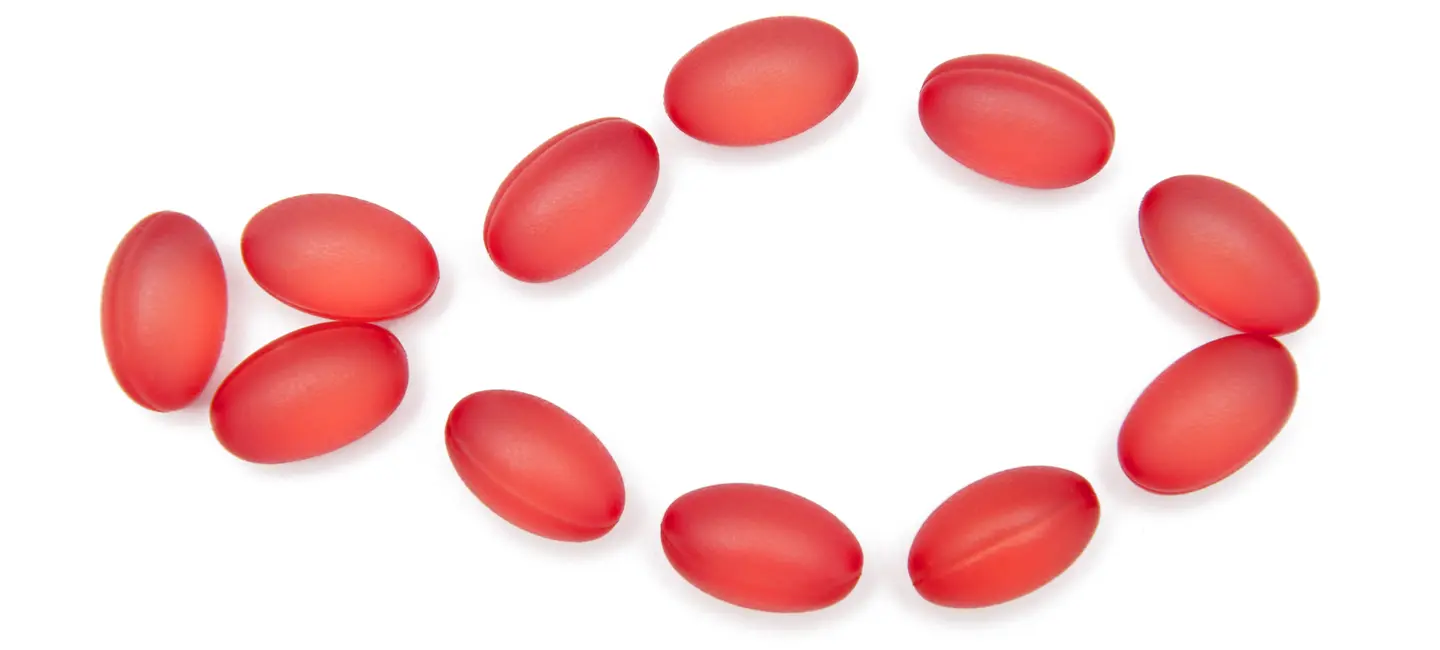
Krill oil comes from a tiny, shrimp-like marine animal. It's rich in the omega-3 fatty acids eicosapentaenoic acid (EPA) and docosahexaenoic acid (DHA).
The benefits of krill oil seem to come from its omega-3 fatty acid content. The body doesn't produce many of its own omega-3 fatty acids. Omega-3 fatty acids can reduce pain and swelling and also prevent the blood from clotting easily.
People use krill oil for dry eye. It is also used for high levels of triglycerides in the blood, high cholesterol, diabetes, depression, and many other conditions, but there is no good scientific evidence to support many of these uses.
Don't confused krill oil with algal oil, cod liver oil, fish oil, or shark liver oil. These are not the same.
Is It Effective?
NatMed Pro rates effectiveness based on scientific evidence according to the following scale: Effective, Likely Effective, Possibly Effective, Possibly Ineffective, Likely Ineffective, Ineffective, and Insufficient Evidence to Rate.
- Dry eye. Taking krill oil by mouth for about 3 months improves dry eye symptoms such as redness.
There is interest in using krill oil for a number of other purposes, but there isn't enough reliable information to say whether it might be helpful.
Is it Safe?
When taken by mouth: Krill oil is possibly safe when used for up to 6 months. Side effects might include stomach upset, decreased appetite, heartburn, fishy burps, bloating, diarrhea, and nausea.
Special Precautions & Warnings:
Pregnancy and breast-feeding: There isn't enough reliable information to know if krill oil is safe to use when pregnant or breast-feeding. Stay on the safe side and avoid use.
Bleeding disorders: Krill oil can slow blood clotting. It might increase the risk of bleeding in people with bleeding disorders.
Seafood allergy: Some people who are allergic to seafood might also be allergic to krill oil supplements. Avoid using krill oil or use it cautiously if you have a seafood allergy.
Surgery: Krill oil can slow blood clotting. It might increase the risk of bleeding during and after surgery. Stop using krill oil at least 2 weeks before a scheduled surgery.
Medications for diabetes (Antidiabetes drugs)
Interaction Rating=Moderate Be cautious with this combination.
Krill oil might lower blood sugar levels. Taking krill oil along with diabetes medications might cause blood sugar to drop too low. Monitor your blood sugar closely.
Medications that slow blood clotting (Anticoagulant / Antiplatelet drugs)
Interaction Rating=Moderate Be cautious with this combination.
Krill oil might slow blood clotting. Taking krill oil along with medications that also slow blood clotting might increase the risk of bruising and bleeding.
Herbs and supplements that might lower blood sugar: Krill oil might lower blood sugar. Taking it with other supplements with similar effects might lower blood sugar too much. Examples of supplements with this effect include aloe, bitter melon, cassia cinnamon, chromium, and prickly pear cactus.
Herbs and supplements that might slow blood clotting: Krill oil might slow blood clotting and increase the risk of bleeding. Taking it with other supplements with similar effects might increase the risk of bleeding in some people. Examples of supplements with this effect include garlic, ginger, ginkgo, nattokinase, and Panax ginseng.
There are no known interactions with foods.
Krill oil has most often been used by adults in doses of 1-4 grams by mouth daily for up to 6 months. Speak with a healthcare provider to find out what dose might be best for a specific condition.
Aceite de Krill, Acide Docosahexaénoïque, Acides Gras Oméga 3, Acides Gras N-3, Acides Gras Polyinsaturés, Acides Gras W3, Antarctic Krill Oil, Concentré de Protéines Marines, DHA, Docosahexanoic Acid, EPA, Euphausia Superba Oil, Euphausiacé, Euphausiids Oil, Huile d' Euphausia Superba, Huile de Krill, Huile de Krill Antarctique, Huile d'Oméga 3, Marine Protein Concentrate, n-3 Fatty Acids, Omega 3, Omega-3 Fatty Acids, Omega-3, Oméga 3, Omega-3 Fatty Acids, Omega-3 Oil, Polyunsaturated Fatty Acids, W-3 Fatty Acids.
Information on this website is for informational use only and is not intended to replace professional medical advice, diagnosis, or treatment. While evidence-based, it is not guaranteed to be error-free and is not intended to meet any particular user’s needs or requirements or to cover all possible uses, safety concerns, interactions, outcomes, or adverse effects. Always check with your doctor or other medical professional before making healthcare decisions (including taking any medication) and do not delay or disregard seeking medical advice or treatment based on any information displayed on this website.
© TRC Healthcare 2024. All rights reserved. Use and/or distribution is permitted only pursuant to a valid license or other permission from TRC Healthcare.
